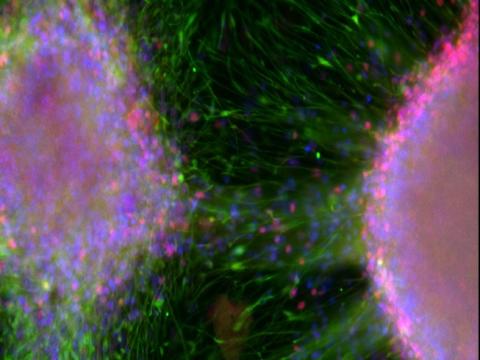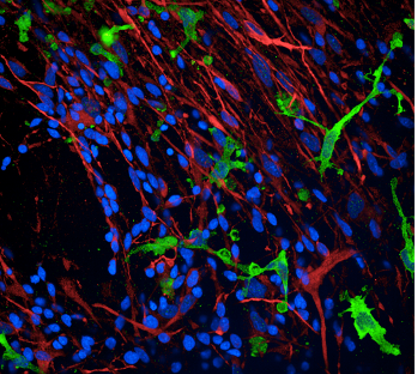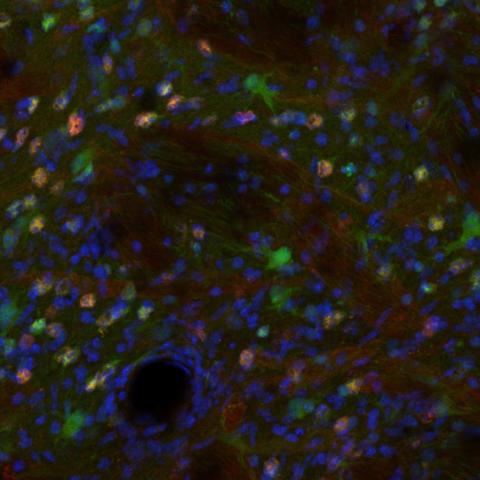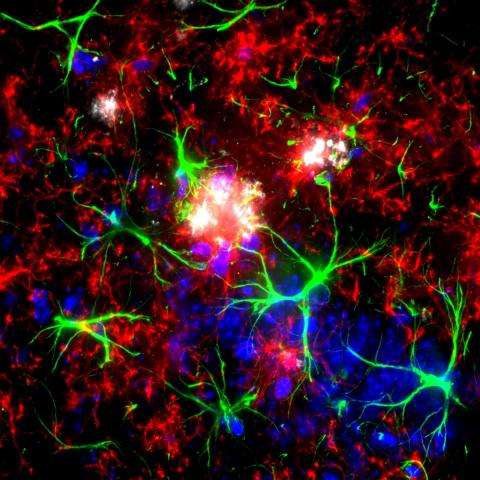Our genes play a crucial role in determining our risk of developing dementia and neurodegenerative diseases. While some rare forms of these conditions are directly caused by specific gene mutations, most cases involve a complex interplay between multiple genes and environmental factors.
Understanding the genetic basis of dementia and neurodegeneration is vital for several reasons. It helps us identify individuals at higher risk, understand the biological mechanisms underlying these diseases, and develop targeted treatments. In recent years, large-scale genetic studies have uncovered numerous genes associated with various forms of dementia, including Alzheimer's disease, frontotemporal dementia, and Parkinson's disease.
At the UK Dementia Research Institute, our scientists are at the forefront of genetic research in neurodegeneration. We are working to unravel the complex genetic landscape of these conditions, from studying rare familial forms to investigating how common genetic variations contribute to disease risk. Our goal is to translate these genetic insights into improved diagnostics, personalised risk assessments, and innovative therapies that can prevent or slow the progression of neurodegenerative diseases.

Latest news
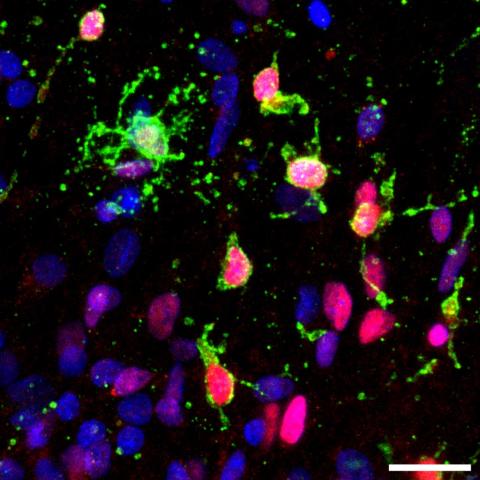


A deeper dive
Genetic research in dementia and neurodegeneration spans a wide spectrum, from rare monogenic disorders to complex polygenic risk. Key areas of investigation, many of which are being explored by UK DRI research groups, include:
- Monogenic forms of dementia: Studies of rare familial forms of dementia, such as those caused by mutations in APP, PSEN1, and PSEN2 in Alzheimer's disease, or MAPT, GRN, and C9orf72 in frontotemporal dementia, provide valuable insights into disease mechanisms. These "experiments of nature" offer opportunities to develop targeted therapies and study disease progression from its earliest stages (Hardy, De Strooper, Duff, Isaacs).
- Genome-wide association studies (GWAS): Large-scale GWAS have identified numerous common genetic variants associated with increased risk of late-onset Alzheimer's disease, Parkinson's, and other neurodegenerative conditions. UK DRI researchers are working to understand how these variants contribute to disease risk and to identify novel therapeutic targets (Williams, Hardy, Escott-Price).
- Polygenic risk scores: By combining information from multiple genetic variants, researchers are developing polygenic risk scores to predict an individual's likelihood of developing neurodegenerative diseases. This approach holds promise for early identification of at-risk individuals and personalised prevention strategies (Escott-Price, Williams).
- Functional genomics: Identifying genetic risk factors is only the first step. UK DRI scientists are using advanced techniques such as single-cell sequencing, CRISPR gene editing, and induced pluripotent stem cell models to understand how genetic variants affect cellular function and contribute to disease processes (Skene, Marzi, Balmus).
- Gene-environment interactions: Researchers are investigating how genetic risk factors interact with environmental and lifestyle factors to influence disease onset and progression. This work is crucial for understanding the complex etiology of neurodegenerative diseases and developing personalised prevention strategies (Wiseman, Webber).
- Epigenetics in neurodegeneration: Studies are exploring how epigenetic modifications, such as DNA methylation and histone modifications, contribute to gene regulation in the context of ageing and neurodegeneration. This research may reveal new therapeutic targets and biomarkers (Marzi, Nott, Skene).
- Somatic mutations in neurodegeneration: Recent evidence suggests that somatic mutations accumulating in neurons over a lifetime may contribute to neurodegenerative processes. UK DRI researchers are investigating the prevalence and impact of these mutations in various brain cell types (De Strooper, Hardy, Balmus).
- Genetic modifiers of disease progression: Identifying genetic factors that influence the rate of disease progression or the manifestation of specific symptoms is a key area of research. This work could lead to new prognostic tools and targeted interventions (Duff).
- Transcriptomics and proteomics: Integration of genetic data with transcriptomic and proteomic analyses is providing a more comprehensive understanding of how genetic variations lead to functional changes at the cellular and molecular levels (Skene, Matthews).
By advancing our understanding in these areas, UK DRI researchers aim to develop a comprehensive picture of the genetic architecture of neurodegenerative diseases. This knowledge is essential for identifying novel therapeutic targets, developing precision medicine approaches, and ultimately finding ways to prevent or effectively treat these devastating conditions.


